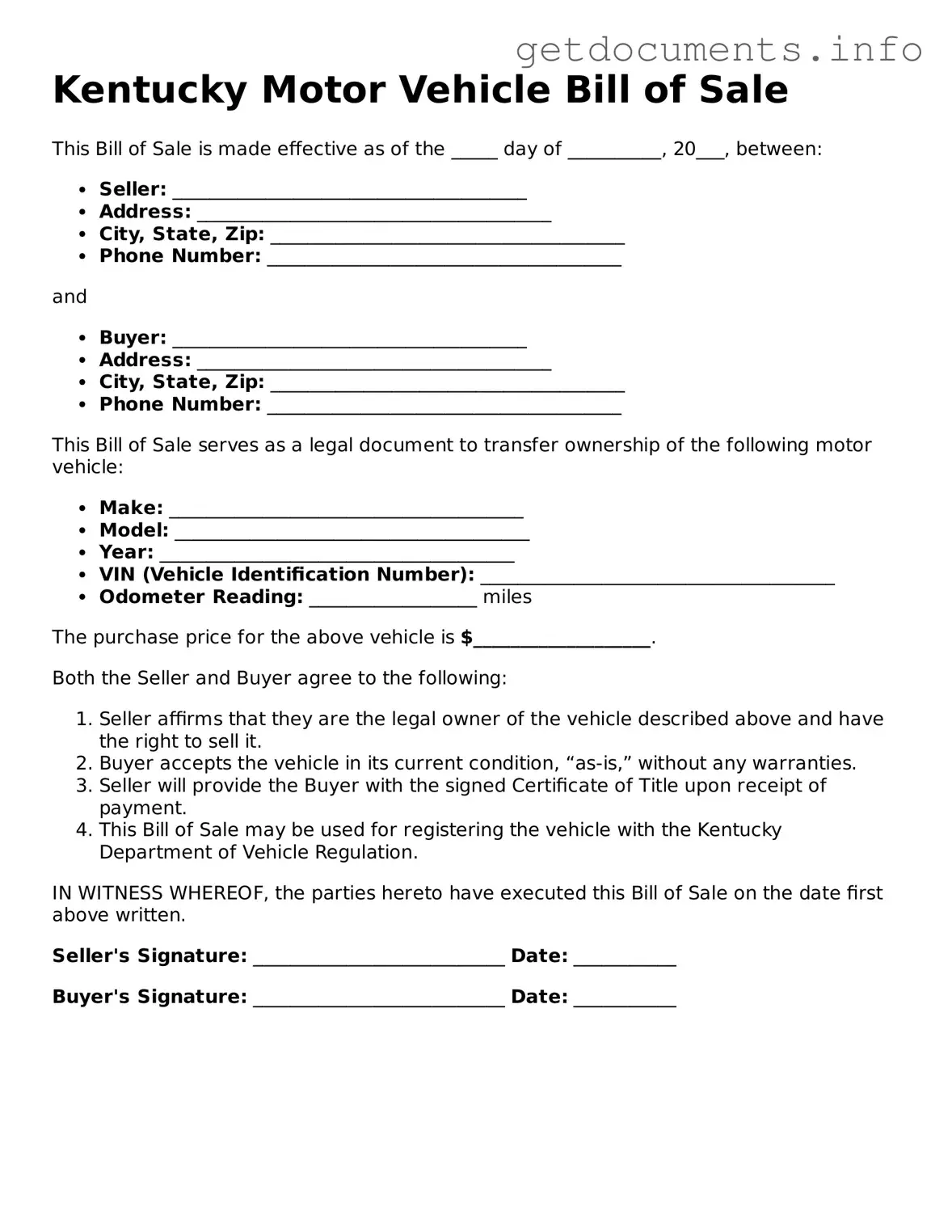Free Motor Vehicle Bill of Sale Template for Kentucky
The Kentucky Motor Vehicle Bill of Sale form is a legal document that serves as proof of the sale and transfer of ownership of a motor vehicle in Kentucky. This form includes important details such as the vehicle's description, the sale price, and the signatures of both the buyer and the seller. It is essential for ensuring a smooth transfer of ownership and can protect both parties involved in the transaction.
To complete the process, fill out the form by clicking the button below.
Access Motor Vehicle Bill of Sale Editor

Free Motor Vehicle Bill of Sale Template for Kentucky
Access Motor Vehicle Bill of Sale Editor
Got places to be? Complete the form fast
Fill out Motor Vehicle Bill of Sale online and avoid printing or scanning.
Access Motor Vehicle Bill of Sale Editor
or
⇩ PDF File
